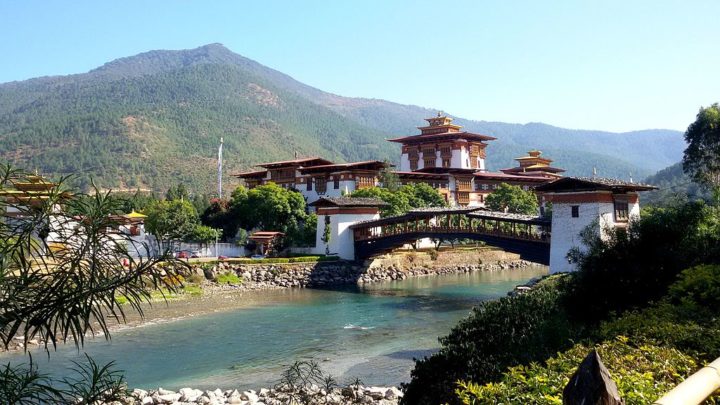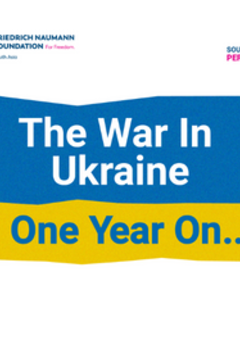The War in Ukraine: Bhutan
Impact of War in Ukraine: Perspective from Bhutan

Russia invaded Ukraine in late February 2022 with President Vladimir Putin anticipating a swift and decisive “special military operation”. Past a year, Russia’s war in Ukraine continues with a mounting human toll, damage to personal and public property and global uncertainty. International sanctions on Russia and supply chain disruptions have resulted in a steep rise in fuel and food prices around the world, with the conflict breaking the supply of wheat, corn and oil from Ukraine and Russia. Countries around the world are grappling with soaring food inflation, and people in developing countries are sinking into poverty.
The war has impacted countries around the globe and Bhutan is no exception. Bhutan’s ambassador to the UN, Ms. Dolma Tshering, speaking at the emergency meeting of the United Nations General Assembly (UNGA), stated that the impact of the war could be felt by the small Himalayan nation some thousands of miles away from Ukraine (South Asian Monitor, 2022).
Its economic lifeline dependent on India, Bhutan is vulnerable to any repercussion the war has on its immediate neighbour. The shortage of fuel was the first of these repercussions, causing long lines of motor vehicles to form at fuel stations even as the government sought to allay public concerns. India's announcement of halting its wheat exports created fear of a potential shortage of food. At the same time, Bhutan’s close relations with India and the latter's strategic relations with Russia made for a delicate situation. Eventually, Bhutan learned some invaluable lessons.
First, Bhutan broke ranks with India at the UNGA and denounced the Russian invasion of Ukraine. This was unprecedented given that on most occasions the two countries had chosen to voice similar concerns at the UN. Second, the shortage of fuel in Bhutan was an almost immediate impact of the war. While most sectors of Bhutan’s economy remained unscathed by the war, it was the transportation sector that bore the brunt. Bhutan imports all its fossil fuel from India, and the cost of diesel and petrol increased sharply by mid-March. This was a domino effect given that India itself imports almost 80% of its crude from the Middle East, Africa, the US and Russia (Ghosh, 2022).
A direct result of the rise in fuel prices was the concomitant rise in food prices (owing to the increase in transportation costs). The National Statistics Bureau of Bhutan reported that the price of consumer goods and services increased by 6.05% in September 2022. It identified transport as the main driver of inflation with a 14.92% increase, contributing an alarming 37% to overall inflation (National Statistics Bureau, 2022).
If the war and supply chain disruptions continue, global food prices could rise further. This could be a serious issue for a net importer country like Bhutan, given that the country’s central bank—the Royal Monetary Authority—has warned that the inflationary pressure on food items is expected to remain elevated in the short- and medium-term. This implies that the middle- and lower-income groups will be affected the most (Royal Monetary Authority, 2021).
Forecasts by multilateral agencies like the World Bank present an uncertain economic outlook for Bhutan in the short- and medium-term. The COVID-19 pandemic left greater devastation in its wake than did the Russo-Ukrainian war. A significant contributor to Bhutan’s GDP, the tourism sector came to a halt for over two years as Bhutan closed its international borders. The World Bank predicts a slow economic recovery for Bhutan, primarily because of lower public investments and delays in hydropower projects.
Bhutan faces numerous vulnerabilities, including its location between India and China, Asia’s rival giants, which presents both opportunities and threats. The country often finds itself embroiled in economic and political rivalries. As a result, even as Bhutan confronts hard choices at home, it must continue to delicately navigate regional geopolitics. Bhutan sees Ukraine's vulnerability directly mirrored in its own geopolitical dilemma.
Read the full paper here:
-

The war has impacted countries around the globe and Bhutan is no exception. Bhutan’s ambassador to the UN, Ms. Dolma Tshering, speaking at the emergency meeting of the United Nations General Assembly (UNGA), stated that the impact of the war could be felt by the small Himalayan nation some thousands of miles away from Ukraine (South Asian Monitor, 2022).
